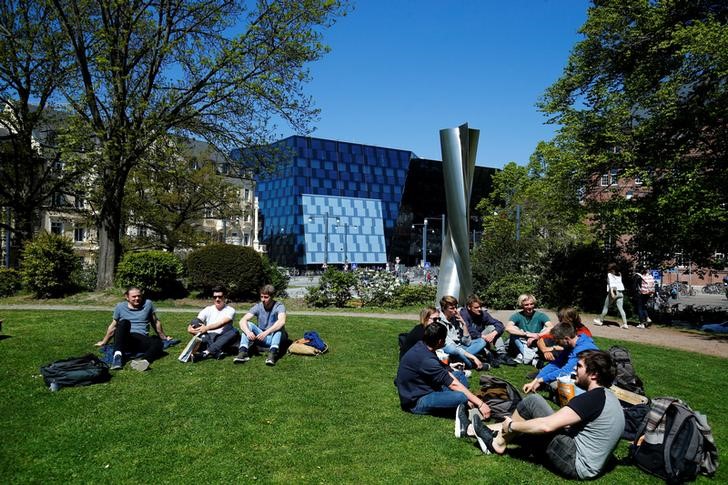BERLIN (Reuters) - German real wages rose in the second quarter despite the highest inflation rate in more than five years, data showed on Thursday, suggesting that household spending will continue to drive growth in Europe's largest economy.
Nominal wages increased by 2.5 percent from April to June while inflation rose to 2.0 percent year-on-year, leaving a real wage gain of 0.5 percent, the Federal Statistics Office said.
Among the sectors with the highest nominal wage increases were energy supply with 4.5 percent, manufacturing with 4.1 percent and real estate management with 3.7 percent.
"Inflation is expected to fall back below the two-percent mark in the coming months, while wages should continue to rise sharply in the face of strong demand for labour," Stefan Kipar from BayernLB said.
"Real wages should therefore post bigger gains in the coming quarters which means that consumption will continue to fuel economic growth," Kipar added.
Helped by low borrowing costs, record-high employment and solid wage increases, household spending has become an important and reliable growth driver, providing a buffer against trade-related risks stemming from rising protectionism.
